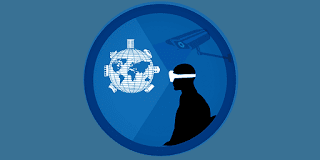Click Here to Get Sample Premium Report @
https://www.marketresearchfuture.com/sample_request/916
Key Players:
Key CompaniesIn The Virtual
Reality (VR) Market Include,
- Sony Corporation (Japan)
- Microsoft Corporation (US)
- Google LLC (US)
- Facebook Inc (US)
- Qualcomm Technologies Inc.(US)
- Samsung Electronics (South Korea)
- Sensics Inc. (US)
- Vuzix Corporation (US)
In any case, dissimilar VR management
organizations, for example, Amazon Travel an another Exposure increased reality
management, hit the profitable center with savvy and silliness managements. In
2020, happening correspondence outlines and reciprocal video became vital
social stations. COVID-19 has hurried growth in numerous VR and computer-generated
travel administrations that have before been giving 360 novelty and vivid
knowledge to sort out certain method to fix it on a ration better scope.
Market segmentation:
The virtual reality market is segmented into
different parts and based on component device type vertical region as well as
Technology. The components segment is subdivided into the hardware and software
divided into different things like sensors this place semiconductors and
others. So basically the software segmented into the development kids' cloud
will as others on their device types be divided into different segments that
are head-mounted displays, guest or tracking devices,3D cameras, display walls
as well as others. So the overall technology is sub-segmented into known
immiscible as you the vertical segment for the divided into consumer
electronics Health Care commercial, industrial as well as other.
Regional classification:
North America has always witnessed the biggest
market leader that continues to maintain winning streaks for the suspension
period. When it is about the presence of many key players that include
Microsoft Google, Facebook, and others it may go to the manufacturing sector
that wise Fortune reality market growth easily. Moreover increasing
applications to other consumer electronics and profile the North America size
during the assessment period the uses factor to the living towards it leads to
a market that is the aim to grow with the rate of 38.05% that is followed by
Canada and Mexico as a list 36.01% and 34.47 respectively.
Browse Full Report Details @
https://www.marketresearchfuture.com/reports/virtual-reality-market-916
Virtual Reality (VR) Industry Developments:
January: Meta (formerly Facebook)
announces that it will be investing $10 billion in VR and AR over the next
year.
February: Sony releases the PlayStation
VR2, its next-generation VR headset.
March: HTC releases the Vive Pro 2, its
latest high-end VR headset.
April: Google releases the Daydream View
Plus, an updated version of its Daydream VR headset.
May: Magic Leap announces that it will
be releasing its second-generation AR headset in 2023.
June: Microsoft releases the HoloLens 2
Enterprise Edition, a more powerful version of its HoloLens AR headset.
July: Unity Technologies releases a new
version of its Unity XR development platform, which includes new features for
creating VR and AR experiences.
August: Valve releases the Index VR
headset, its first high-end VR headset.
September: Oculus releases the Quest 2, its
next-generation VR headset.
October: The VR industry sees a
significant increase in investment, with companies like HTC, Sony, and Magic
Leap all announcing new funding rounds.
November: The VR industry sees its first
major consumer adoption event, with the release of the Oculus Quest 2.
December: The VR industry continues to
grow, with new headsets, games, and experiences being released on a regular
basis.
Related Reports:
About Market Research Future (MRFR):
Market Research Future (MRFR) is
a global market research company that takes pride in its services, offering a
complete and accurate analysis with regard to diverse markets and consumers
worldwide. MRFR’s approach combines the proprietary information with various
data sources to give an extensive understanding to the client about the latest
key developments, expected events and also about what action to take based on
these aspects.
Contact:
Market Research Future (Part of Wantstats Research
and Media Private Limited)
99 Hudson Street, 5Th Floor
New York, NY 10013
United States of America
+1 628 258 0071 (US)
+44 2035 002 764 (UK)
Email: sales@marketresearchfuture.com

